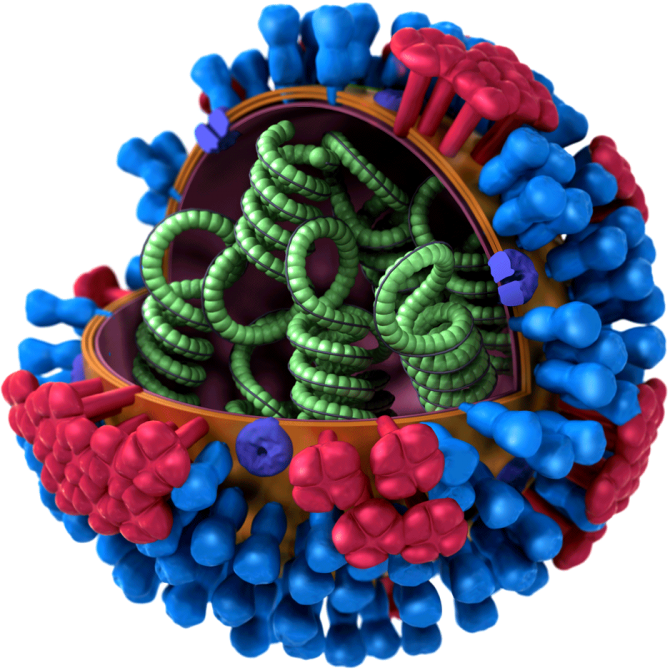Could a Newly Developed RNA-Based Vaccine Offer Lifelong Protection From Flu?

A new experimental flu vaccine made out of messenger RNA (mRNA) that may work for life is now being developed.
German researchers said on Sunday that the vaccine, made of the genetic material that controls the production of proteins, protected animals against influenza and, unlike traditional vaccines, it may work for life and can potentially be manufactured quickly enough to stop a pandemic.
Researchers explain that the current vaccines on the market work by instructing our immune systems to recognize two virus proteins called HA and NA. However, the problem is that these two proteins are constantly evolving, which is essentially why new vaccines are always needed.
Researchers believe that the secret for the everlasting vaccine against the multiple flu virus strains is to target something that never changes.
Past studies have suggested a universal flu vaccine that involved targeting other proteins on the flu virus that don't change as quickly as the NA and HA proteins, but the new newly proposed vaccine goes beyond that and targets the underlying RNA-driven processes that create the NA and HA proteins, regardless of their strain, according to New Scientist.
The new vaccine is made only of mRNA, which is a single-stranded molecule that carries information that teaches cells which proteins to make.
When the mRNA is injected, it would be detected by the body's immune cells, which would then translate the vaccine into protein. Researchers explain that the proteins would be recognized by the body as foreign material, and thus trigger an immune response if it ever encounters the virus.
Researchers say that RNA vaccines are particularly attractive because, unlike proposed DNA vaccines, it is impossible for RNA to be spliced into the human genome, therefore cutting the risk that it could disrupt normal genetic behavior.
While past experimental RNA vaccines have failed because they are usually quickly destroyed in the blood, German researchers have discovered that a protein called protamine, which binds to mRNA, will protect the RNA vaccines from being pulled apart in the blood stream.
Researchers added that unlike traditional vaccines that need to be kept cool, the new mRNA-based vaccine could be turned into a freeze-dried powder that does not need to be refrigerated.
If the vaccine works in people, it could eventually be given once in childhood to protect a person from all flu strains.
The latest study is published in the journal Nature Biotechnology.
Published by Medicaldaily.com



























